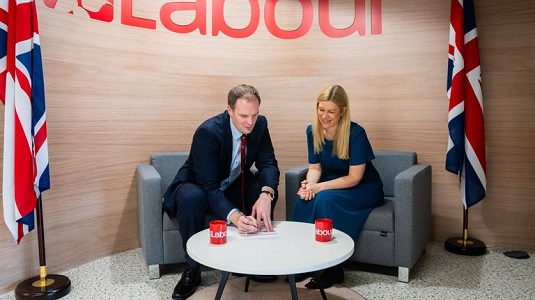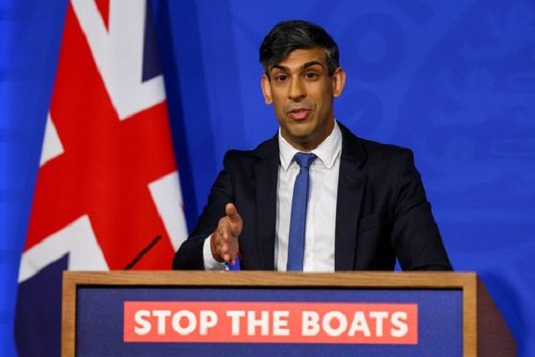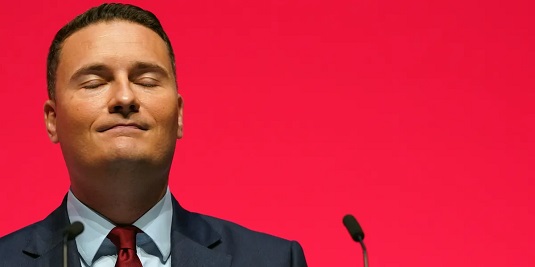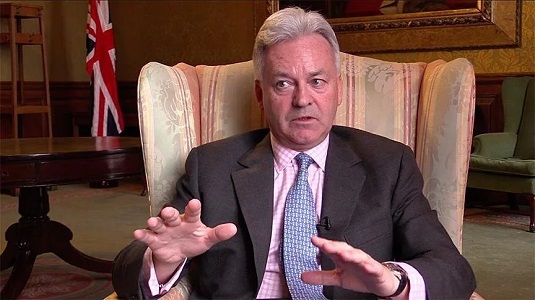
There will be some on the left who routinely stand against Labour in elections who'll be put out by Galloway's ambition. The next steering committee meeting of the Trade Unionist and Socialist Coalition is bound to be a hoot. But as Richard Seymour rightly observes, that section of the left can't complain. The two biggest parties on the far left are more interested in sect building than anything more ambitious than that. Small wonder the RMT packed its bags and left TUSC hanging. Why put resources into an electoral effort that is furloughed from one election to the next? Galloway is responding to a political vacuum that, for others, is treated nothing more than an opportunity to recruit a few dozen paper sellers.
The question is can the Workers' Party capitalise on Galloway's by-election victory and make a breakthrough at the next election? Labour seem convinced that they'll oust the Gorgeous One from Rochdale, but I'm not so sure. It was often said that the coalition of support Tony Blair and New Labour built was a mile wide but only an inch deep. Yet, the party won three elections and enjoyed significant poll leads over the Tories for the majority of that time. Regardless of what one thinks of its politics, the Labour government showed resilience in office. The same cannot be said for the coalition Starmer is putting together. Attracting Tories is no substitute for putting down the social roots required to prevent his project from getting buffeted by the howling political winds. Yet, not only is this what Starmer is intent on doing his constant retreats from popular, Labourist policies are actively pulling up those roots. Speaking about hope without offering any is a fool's errand. While we see huge polling leads for Labour popular enthusiasm is lacking and Starmer's personal ratings are firmly in the negative. As such, with a Labour victory a complete certainty there isn't a better time for a left electoral challenge. Which Galloway knows well.
Therefore, it's quite possible the Workers' Party could make some significant inroads. At the campaign event, Galloway introduced Aroma Hassan, who is standing against Angela Rayner in Ashton-under-Lyne. He boldy predicted she would capture 10,000 votes, which puts Labour's deputy leader at risk (her majority is 4,263). Many have been the times when Labour politicians have lectured others about splitting the vote, and Galloway is deliberately playing up to this well worn fear. And why not? You only have to see the rhetoric from leading shadow ministers to see how they hold significant chunks of their voter base in contempt.
Knowing British politics, it's exceedingly unlikely the Workers' Party will poll anywhere near 10,000 votes in any constituency. Except Galloway's own. But apart from the well known issues with its leading personality, there are issues with the Workers' Party's politics that puts its long-term viability into doubt. Despite its name, the most enthusiastic support is drawn not from Muslims per se but Muslim business owners. The operation is well-funded by the standards of the British far left, and though Galloway is not short of a bob or two his consistent campaigning has attracted donors that would previously, as a matter of course, given money to the establishment parties. This helps explain why, despite the differences between the Workers' Party and Reform/Brexit Party/UKIP, on social issues and "values" they are equally as socially conservative, if not authoritarian. Hence the anti-trans posturing we saw in Rochdale. But also like other populist projects, it's irredeemably nostalgic. For instance, Amjad Bashir, the restaurateur and catering businessman, lifelong supporter of right wing politics and former UKIP MEP for Yorkshire and the Humber at today's campaign launch said he wanted to see manufacturing brought back to Britain. Nothing wrong with this, especially when more manufacturing should be re-shored to cut down on shipping and air freight emissions, but in this context it's about evoking an image of a Britain that's passed to make the party's would-be supporters feel secure about the future. A backward looking, small-c conservative, old Labour Britain you might say.
The problem is such a prospectus is extremely time-limited in its appeal. As argued here many times before, the anti-woke rubbish peddled by establishment politicians and their useful idiots is a reaction against the diversity of the working class as it exists today, in 2024. Galloway and the Workers Party fetishise an image of the worker that doesn't exist any more. Their resolutely hetero, masculine characterisation of the salt of the earth working class might play well to retired people and a petit bourgeois imaginary that appreciates graft, but for the rising generation it's likely to be a huge turn off. And that's before you talk about Brexit and "strong borders". As Starmer's government encounters difficulties, unless a different left force not so encumbered emerges then the Liberal Democrats and the Greens are well positioned to capture this discontent, precisely because the Workers' Party has put itself on the other side of actually-existing workers' interests. Therefore you might expect it to win votes in future from layers who have or might otherwise support Reform.
Nevertheless, that's for the future. Right now with the Israeli genocide of Gaza's Palestinians in full swing and the roiling anger hitting the streets weekend after weekend, Galloway is well placed to seize the moment and use it to power the strongest challenge from the left of Labour since Respect's heyday in 2005, if not the Communist Party at its height in the 1940s. And he's in such a position because the others outside of Labour have readily ceded the political ground to him.









